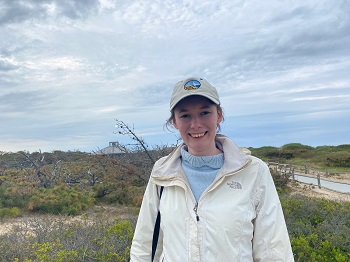
Posie
Contributor’s Marginalia: Felicity Sheehy responding to Forester McClatchey’s poem “Alpine Meadow”
A poem is like a flower. Many poems concern flowers, of course: think of Wordsworth’s daffodils, Plath’s tulips, Louis Gluck’s wild iris. But this is not quite what I mean. In the Renaissance, poets treated the two as almost interchangeable, using the flower as an image for the poem, the poem an image for the flower. Even the word “posie” was surprisingly slippery: it could designate “a small bunch of flowers” or “a collection of poetry.”1 Poets would pick “posies” for their gardens, literary and otherwise. This (word)play—however archaic—suggests a connection between poems and flowers, which can both “exist in [a] moment, at a particular place.”2 Like a flower, a poem can thrive under certain conditions. It can feel momentary. It can be localized.
“Alpine Meadow” is this kind of poem. Like the flowers alluded to in its title, it is small, rare, brief. It evokes a particular climate: icy, cloudy, “elk-trampled.” Early on is even an echo of ‘The Lake Isle of Innisfree’. McClatchey writes,
It only grows in high, elk-trampled fields
alongside flowers that take thirty years
to grow, and should it root, the soil is poor,
hail is frequent, and rain comes cutting cold.
Here, McClatchey’s “rain comes cutting slow” recalls Yeats’s “peace comes dropping slow.” Like this earlier poet, McClatchey also pays close attention to sound. “Alpine Meadow” is a fourteen-line sonnet, written in loose iambic pentameter, full of echoing vowels and consonants and line endings. Note the alliteration of “cutting cold,” the assonance of “loath” and “grow.” Note the subtle rhyme scheme, which ebbs and flows, asserting itself more and more as the poem progresses.
Part of what makes the form effective is its refusal to take itself too seriously. As the speaker makes clear, this trip is far from ideal. The other tourists are “bored,” “unbelieving,” “already yawn[ing].” The likelihood of success is small: “the soil is poor / hail is frequent,” the longed-for thing “only” found “in high, elk-trampled fields.” The speaker knows that his quest is “archaic and embarrassing / as rhyme”: “You have been looking for it all your life, / but are too ashamed to say its name aloud,” a line which itself adds an extra syllable to the pentameter. At just this moment, the poem begins to rhyme:
Goodness: archaic and embarrassing
as rhyme, fragile as an eyelid-skin,
and just as loath to grow. Take a cutting
of the sorry thing, fly it home, coddle it in
a warm glass, and see: without ice
and wind and punishment, it dies.
The rhyme scheme only hinted at earlier—”cloud” and “aloud”—emerges in full force: “skin” and “in,” “embarrassing” and “cutting.” Rhyme is risky. It offers a meaning that is sonic, more than semantic. It points to the secret connections between words, the likeness in the logically unlike. It embraces what doesn’t quite make sense, or what exceeds sense. It is akin to seeking something “archaic and embarrassing” your whole life. Or to loving something that “dies.”
This vulnerability undergirds the poem. The speaker—with this embarrassing, long-lasting desire—makes himself vulnerable. So too does the poet, rhyming while poking fun at rhyme. Even the “cutting” of this “sorry thing” is as “fragile as an eyelid skin.” All are like one another: all, in other words, rhyme. “Alpine Meadow” suggests that the most vulnerable things—the things we “are too ashamed to say […] aloud”—are the most universal. The poem is at once intensely specific and intensely shared. Its pronouns could have many antecedents. “It” is only named in the sestet, and subtly, indirectly, even there. “You” are invited in. And “you have been looking for it all your life.”
Poetry is also vulnerable. Part of this quality has to do with its engagement with the private, the improbable, the embarrassing. Apostrophe, Jonathan Culler once suggested, can be cringe-inducing; even Elizabeth Bishop once declared that “there is nothing more embarrassing than being a poet.”3 But poetry is itself “fragile.” As McClatchey suggests, it is “archaic and embarrassing:” not just its rhymes, but its potential for failure. Even when “coddl[ed]” “in a warm glass,” without the right conditions—”without ice / and wind and punishment”—it can die. It is like a flower, “loath to grow.” You look for it all your life.
↔
